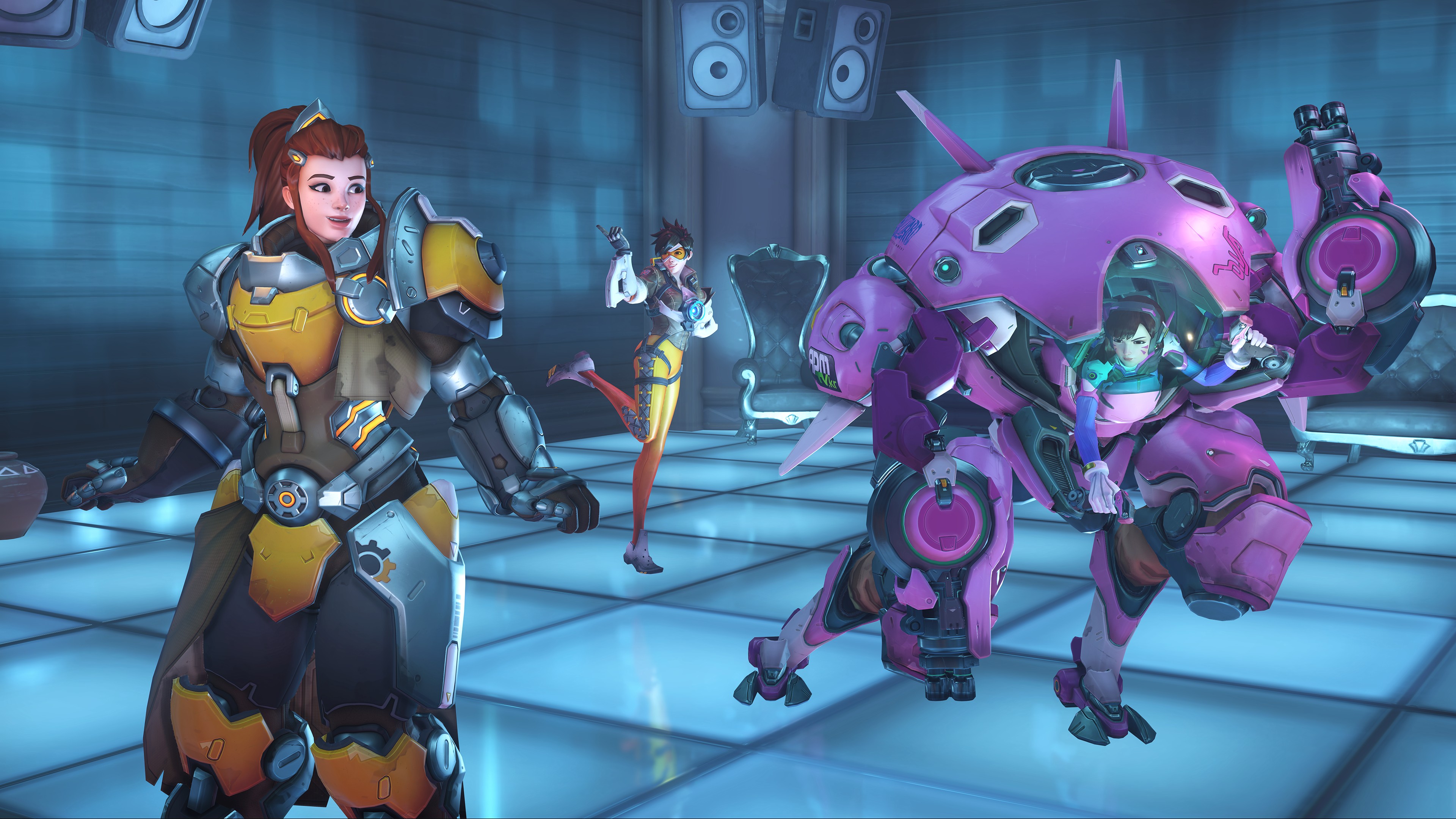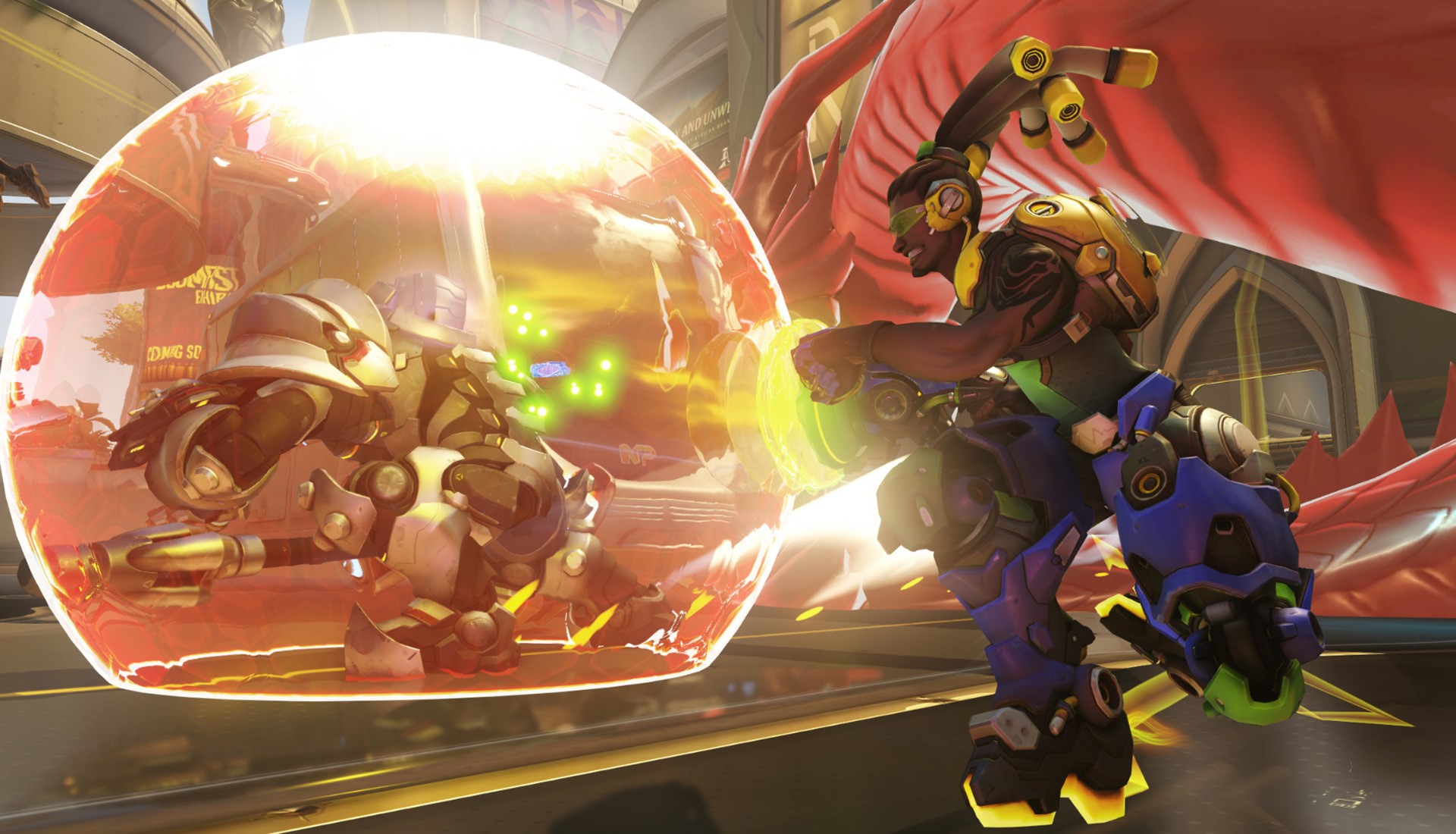Overwatch designer dispels myths about matchmaking and skill rating changes
Scott Mercer wants to encourage more players to group up.

Ahead of Overwatch getting a 'looking for group' feature that will let you choose the types of players you team up with, Blizzard principal designer Scott Mercer has taken to the game's forums to bust a few myths about how matchmaking works with groups, and how playing in a group affects changes to your skill rating (SR) when you win or lose.
Mercer said that there was "reluctance from the community when it comes to grouping", partly down to a few common "misconceptions". The one that comes up most often, he said, is that you gain less SR for winning when you're playing as a group, and lose more SR when you're defeated. That is flat out wrong: your group status has zero impact on SR changes, Mercer explained.
"It doesn’t matter if you’re solo, grouped with one other person, or in a full group of six. If you are a 2800 SR player grouped with five other 2800 SR players, the SR change after a win or loss is the exact same as if you played the game solo with five other solo 2800 SR players," he said.
Some players also avoid grouping up because they're afraid of running into more cohesive groups that have spent more time together, Mercer said, adding that there are "several issues" with that line of thought. Most groups don't stick together for very long, he said, and the largest benefits come soon after you group up, with "diminishing returns" after you stick with the same group. Groups that work well will also have a naturally higher SR than groups that don't click, which means the two are unlikely to match.

Mercer went on to talk through the data behind groups in Overwatch. Most games contain at least one group: only 16% of matches are made up of all solo players, he said. Interestingly, and something I'd never thought of before but seems obvious now, the game will work to match you up with an enemy team made of similar-sized groups to yours.
If you're in a team of solo players, three in four of the teams you face will be made up of solo players too. But if you're in a six stack, 92% of your matches will be against teams of six in a group, or against compositions made up of groups of 5-1, 4-2, 3-3 or 2-2-2.
He also revealed that, before each potential match, the matchmaker calculates the chance of winning for each team based on the SR of the players. If one team has less than a 40% chance of winning, the match will not be created, and the matchmaker will look again. The higher your projected win rate, the less SR you'll gain for winning, and the more you'll lose for losing.
The biggest gaming news, reviews and hardware deals
Keep up to date with the most important stories and the best deals, as picked by the PC Gamer team.
Lastly, Mercer talked through how playing as a group affects your chance of winning. The composition that wins the most, unsurprisingly, is a full group of six. But it's less dominant than I expected: those teams win just under 53% of the time, probably because they're matched up with teams made of other large groups. Solo players have an average win rate of 49.94%, which is actually higher than some grouped team compositions, like 2-2-1-1.
If you want to dig into all of Mercer's insights, of which there are many more, then check out the full thread here.
Samuel Horti is a long-time freelance writer for PC Gamer based in the UK, who loves RPGs and making long lists of games he'll never have time to play.


